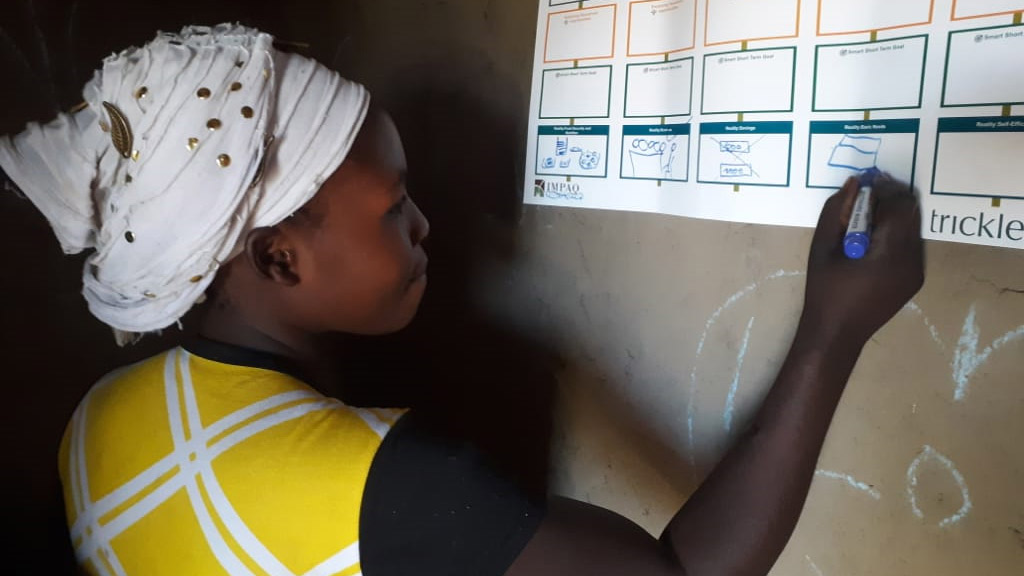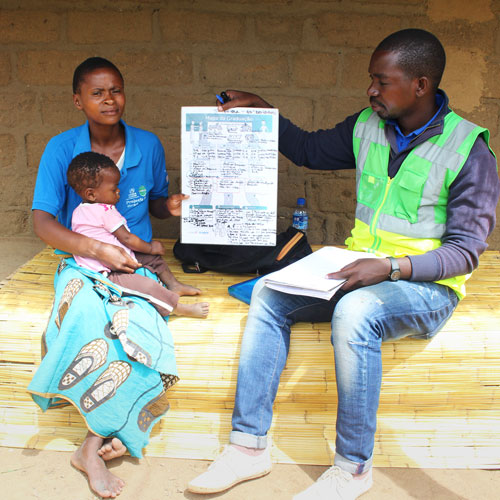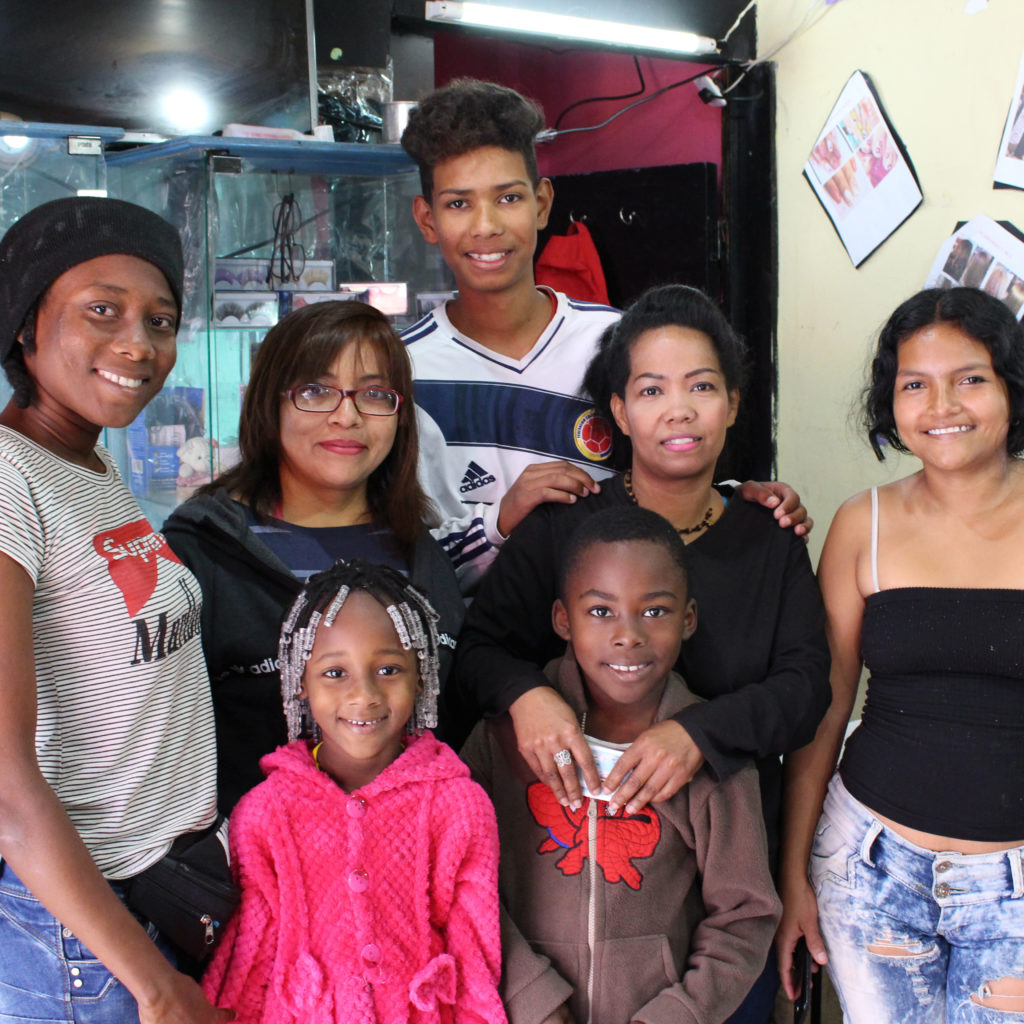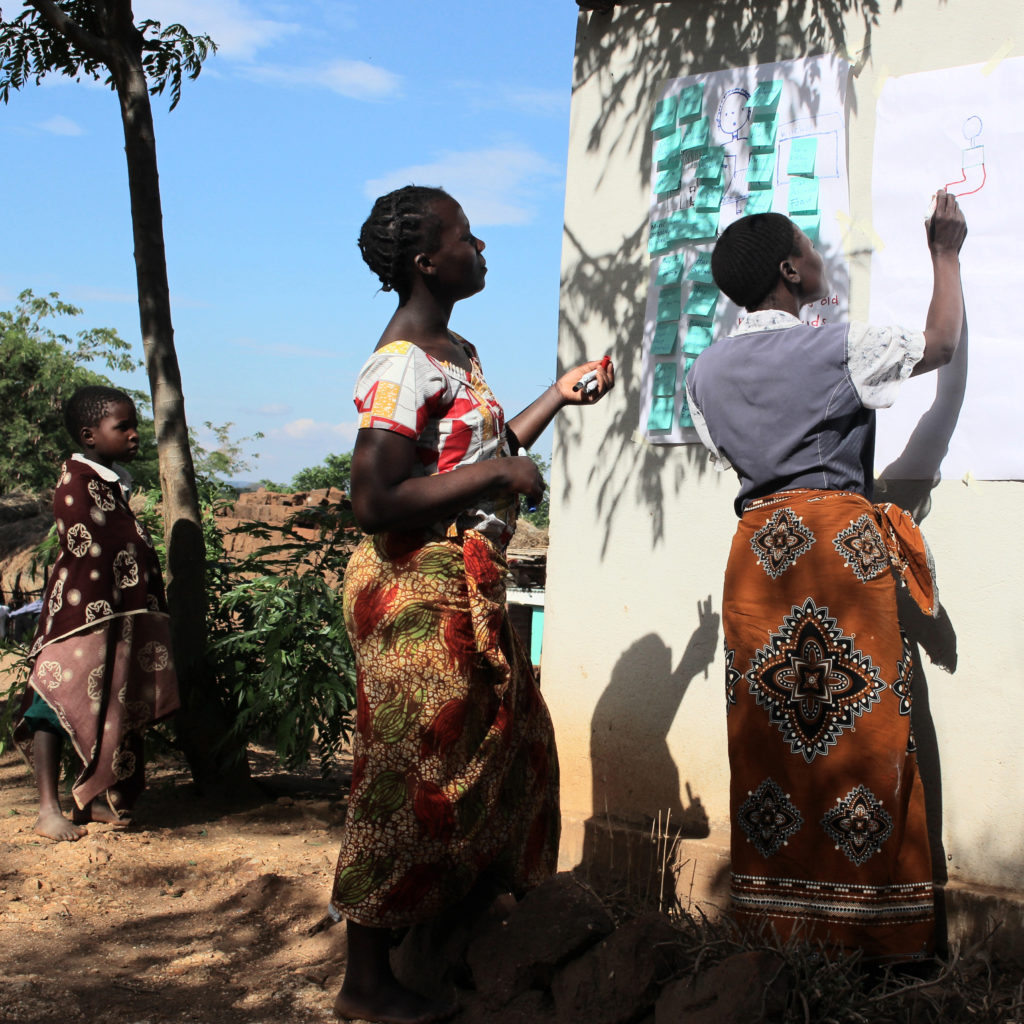By 2030, the UN Sustainable Development Goals call on the international community to end poverty in all its forms everywhere. This pursuit remains a daunting challenge for humanitarian and development organizations working to alleviate extreme poverty for refugees.
Refugees, many already living in protracted displacement, face multiple levels of vulnerabilities and exclusion that perpetuate the cycle of poverty. Addressing poverty in the refugee context requires a creative and comprehensive response that is adaptable to a variety of contexts: urban, rural, camp, and settlement. It must address dependency on aid, financial exclusion and lack of savings, xenophobia and discrimination, and a lack of economic opportunities in order to adequately build sustainable livelihoods for displaced people living in extreme poverty.
Since 2013, Trickle Up has been building the institutional capacity of UNHCR, the UN Refugee Agency, and local implementing partners to bring the Graduation Approach to extremely poor refugees and other displaced peoples. By providing context-specific technical assistance to design and implement Graduation, an integrated and multi-sector intervention, Trickle Up’s goal is to provide the building blocks that transition refugees from extreme poverty to a path of resilience and self-reliance. This innovative program is now being used in ten UNHCR country operations.
Partnering to End Poverty
In my three years as a technical assistance provider, I have seen first-hand not only the growth of Trickle Up’s Refugee Affairs program, but also the importance of providing adapted and contextualized technical assistance and expertise. Graduation is a complex approach, with several time-bound components, that overall can last between 18-36 months. What works in one context will not always work somewhere else.
At Trickle Up, we have drawn on our work spanning ten country operations and three continents to put together guidance around how to design, adapt, and implement graduation for refugees and host communities affected by displacement. The Graduation and Refugee Standards sets the core components and considerations for applying Graduation in the context of displacement and provides potential actions and indicators to create, assess, and develop these topics. The Standards address how to efficiently achieve quality outputs in a consistent way across all the projects.
Practitioners should use the Graduation & Refugee Standards throughout the program cycle, in alignment with planning, design, implementation, and evaluation phases of graduation programming for refugee and host communities. Donors, governments, private-sector actors, proposal writers, and evaluation staff may also find it a useful resource for designing or reviewing related programs.
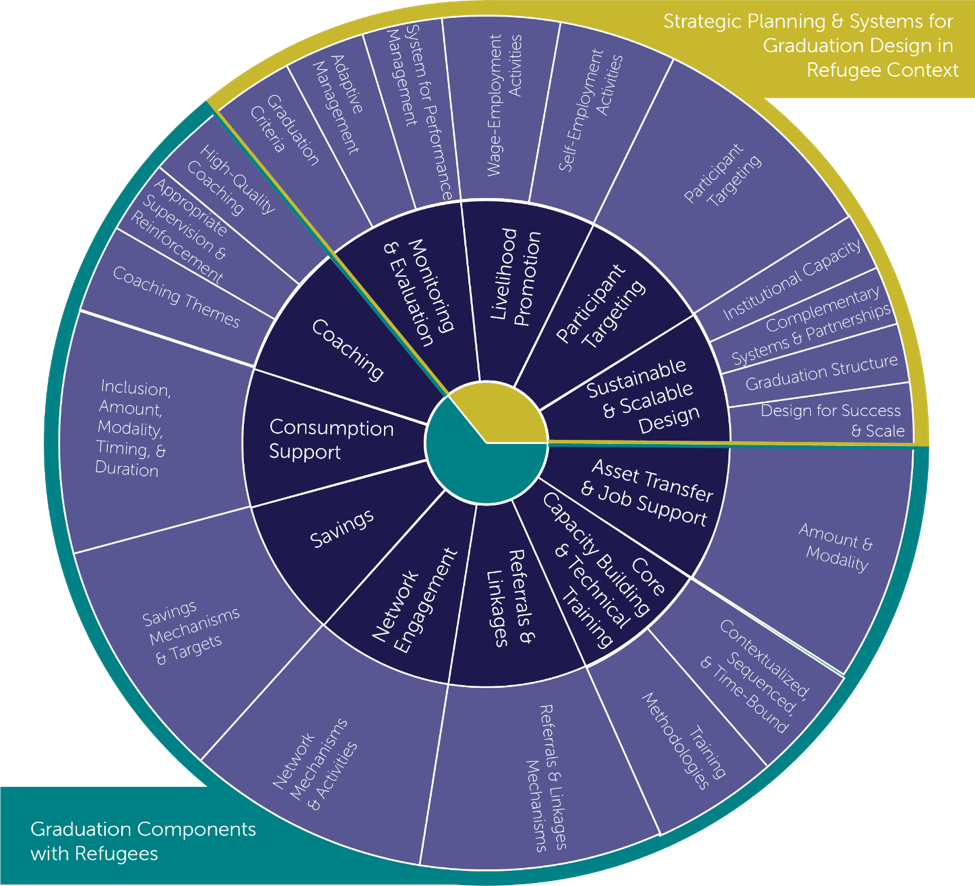
The graphic above depicts the 11 topics (which appear in the inner circle) addressed in the Standards. Topics 1-4 focus on Strategic Planning & Systems for Graduation Design in the Refugee Context, and topics 5-11 focus on the Graduation Components themselves, specifically related to their logic, sequencing, and adaptations that ensure quality programming. Each topic includes a set of Standards (which appear in the outer circle), followed by Key Actions, Key Indicators, and Guidance Notes.
- The Standards reflect the logic and rationale of the Graduation intervention within the refugee context. They are universal and applicable in any environment. They are a benchmark by which the quality of activities can be judged.
- Key Actions are suggested tasks or steps that may be completed or implemented by practitioners to meet the Standards. While some Key Actions may be relevant in a situation, the appropriateness of others may depend on the context. Therefore, fulfilling the Standard does not require the completion of all Key Actions. Additionally, it may require the completion of additional steps not yet included in this guide.
- Key Indicators serve as signals that show whether a standard has been met. They provide a way of measuring and communicating the results of Key Actions.
- Guidance Notes provide various points to consider when applying the Standards and Key Actions in different situations. They offer direction on how to tackle practical difficulties or advice on priority issues.

